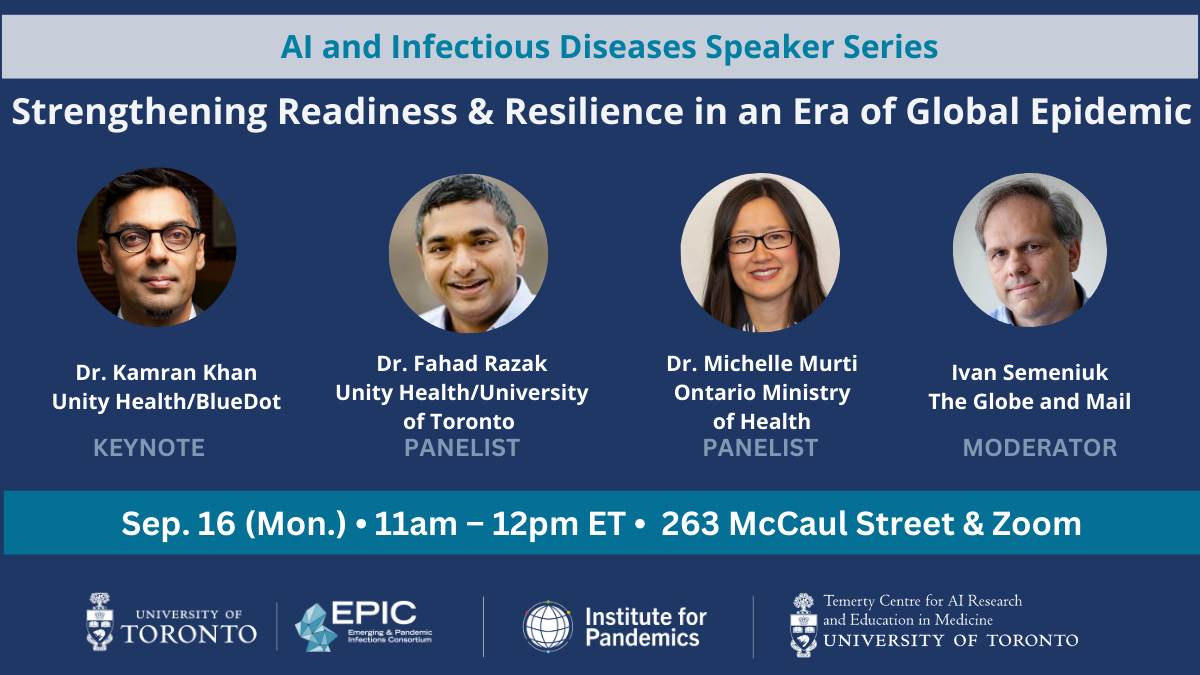How do researchers use artificial intelligence (AI) to predict and prevent outbreaks of infectious diseases? How are advances in AI and machine learning (ML) algorithms improving healthcare systems and how can researchers and clinicians harness the power of AI to understand disease biology and accelerate therapeutics discoveries?
These were some of the ideas explored through the speaker series the Emerging and Pandemic Infections Consortium co-hosted in the Fall of 2024 with the Institute for Pandemics (IfP) and the Temerty Centre for AI Research and Education in Medicine (T-CAIREM).
Every discussion in this three-part series began with a keynote presentation by a guest speaker followed by a panel discussion with two invited experts moderated by Ivan Semeniuk, Globe and Mail’s science reporter. All the events were free and available in a hybrid format.
The first event of the series focused on strengthening readiness and resilience in an era of global epidemics. Kamran Khan (Unity Health Toronto and BlueDot) gave an insightful keynote presentation about the potential of AI to improve surveillance and detection of infectious threats. In the panel discussion that followed, Michelle Murti (Ontario Ministry of Health) and Fahad Razak (Unity Health Toronto) joined the conversation to explore the challenges of implementing AI in healthcare and potential benefits, including the application of AI to predict and prevent future outbreaks.
The second event hosted by IfP explored methods to create more resilient and responsive healthcare environments. Zahra Shakeri (Dalla Lana School of Public Health) delivered a keynote presentation on the applications of AI and crowdsourcing to improve patients’ experiences of hospital visits. The following panel discussion allowed her, Elham Dolatabadi (York University) and Robert Greer (The Hospital for Sick Children) to have a conversation about the pitfalls of using AI in healthcare systems and the need for effective guardrails for AI data management.
The last installment of the series was featured in the third annual AMR Symposium under the theme Tools to Power the Fight Against AMR and hosted by T-CAIREM. Cesar de la Fuente (University of Pennsylvania) outlined his groundbreaking research seeking novel antibiotic molecules from proteome analysis of both extant and extinct species. He expanded on this idea and discussed how advances in AI and ML fuel the development of novel infectious disease interventions in a panel with Dionne Aleman (University of Toronto) and Artem Babaian (University of Toronto).


